News



Co-hosted by the Institute for China & World Studies of Tongji University and the Center for Chinese Studies of Dongseo University (DSU), the 2nd Shanghai-Busan Cooperation Forum & International Symposium on “Regional Cooperation in Northeast Asia” was successfully held in Tongji University on December 1-3, 2017. South Korean representatives included Prof. Cho Jeoung-seong, Vice President of DSU, Shin Jung-seung, former South Korean Ambassador to China, Lee Sun-jin, former South Korean Ambassador to Indonesia, Park Sang-ki, former South Korean Ambassador to Geneva, and Chung Sang-ki, former South Korean Ambassador for Northeast Asian Cooperation, as well as dozens of scholars and directors from the Korea National Diplomatic Academy (KNDA), Dongseo University, Dong-eui University, Korea Maritime & Ocean University (KMOU), Dongduk Women’s University, Changwon University, DAEAH E&C, SND LOGIX, EASTERN MARINE, and KISOO. Chinese representatives included academic and business leaders from Tongji University, Nanjing University, Shanghai International Studies University, Jilin University, and Shanghai Normal University as well as Red Star Macalline, World Transmission Technology, and HNA CCOOP Technology. Participants conducted in-depth discussions on topics such as the changing world pattern, international relations in Northeast Asia, China and the world in the eyes of entrepreneurs, China-ROK relations, and Shanghai-Busan cooperation from the perspective of urban governance.
The opening ceremony was moderated by Tongji Distinguished Professor Men Honghua, President of the Institute for China & World Studies and Dean of the School of Political Science & International Relations (SPSIR) of Tongji University. Jiang Bo, Vice President of Tongji, Cho Jeoung-seong, Vice President of DSU, and Ambassador Shin Jung-seung, Director of the Center for Chinese Studies of DSU, delivered speeches at the opening ceremony.
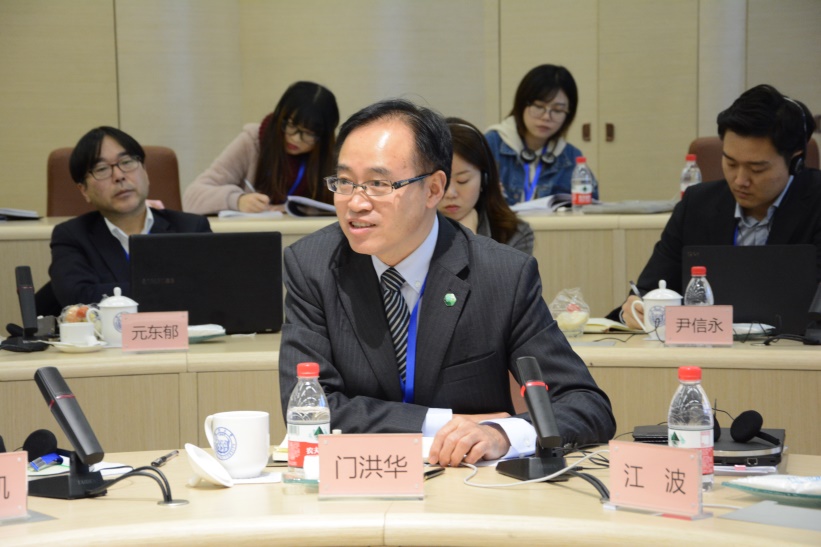
Tongji Vice President Jiang Bo expressed his warm welcome and gratitude to the participants. He said that the second forum is held at a time when the 19th CPC National Congress has just been successfully concluded, which is of great significance. Closely around the development theme for a new era, this forum will delve into economic and trade, cultural people-to-people exchanges and other areas, to offer new inspirations and suggestions for the two countries to consolidate the foundation of common interests, handle practical problems, embrace the future of Northeast Asian cooperation, and promote Shanghai-Busan exchanges and cooperation, which will eventually benefit the two countries and the two peoples.
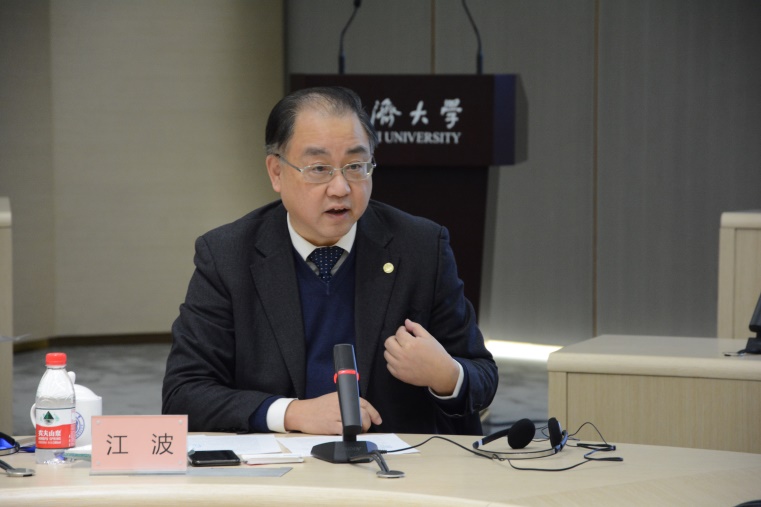
On behalf of DSU, Vice President Cho Jeoung-seong expressed his sincere gratitude to Tongji University for its strong support and to all the participants. He said that the recent China-ROK relations show an improving trend, and the relations between Busan and Shanghai should also be closer. As an important city in Northeast Asia, Busan has substantial cooperation in many sectors with many regions in China, and as the most iconic international city in China, Shanghai pioneers in many changes in China. He expected to enhance exchanges and cooperation between the two countries by holding this forum on a permanent basis.
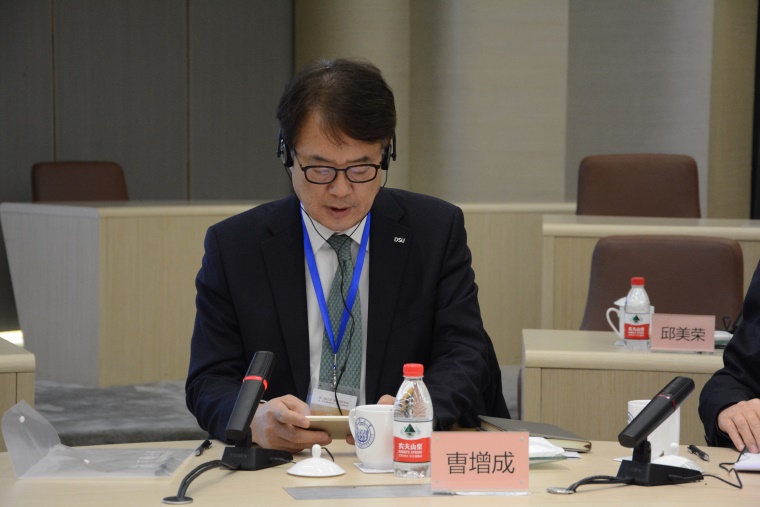
Ambassador Shin, the Korean initiator of the forum, said in his speech that he was very happy to visit Shanghai again and congratulated the convening of the 19th CPC National Congress. He firmly believes in the eventual realization of the Chinese dream of national rejuvenation. The recent progress of China-ROK relations has overshadowed the THAAD issue, and with the expansion of bilateral cooperation, both governmental and nongovernmental exchanges are coming back to life. He believed that China-ROK relations will be further strengthened after a difficult period, and exchanges between local cities will play a positive role in easing and fixing the bilateral relations.
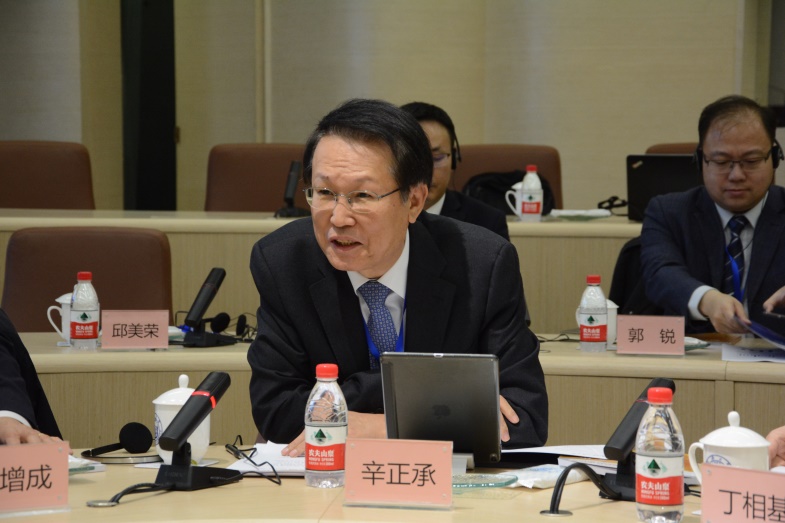
After the opening ceremony, the participants took a group photo.
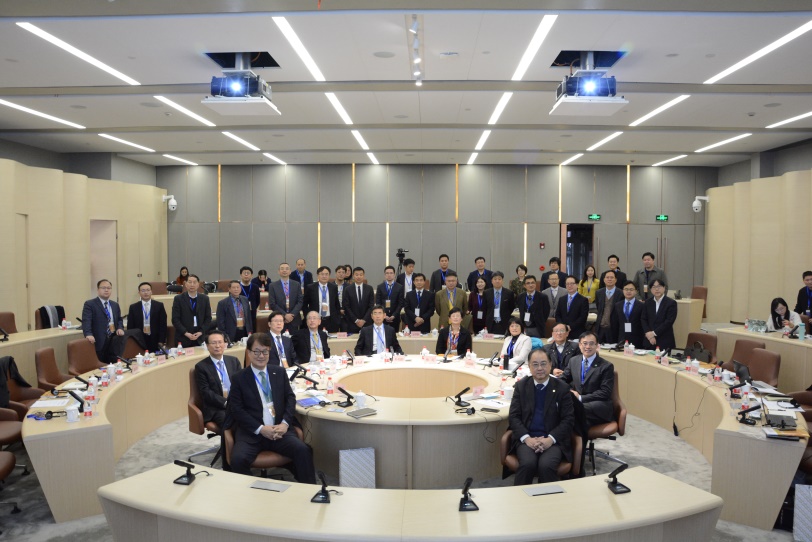
Ambassador Shin moderated the first session themed “the Changing World Pattern”. Kim Tae-wan, a professor at Dong-eui University, discussed China-US competition and cooperation. The two major powers are expected to maximize cooperation and minimize competition, and talk to each other constantly to increase mutual trust.
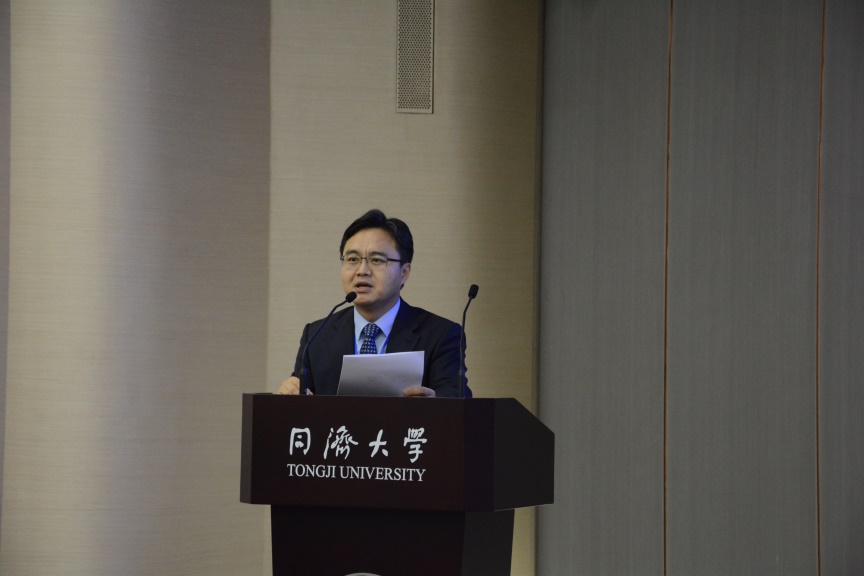
Prof. Wang Cungang, Associate Dean of SPSIR, expressed his views on the certainty and uncertainty of the future world pattern, believing that the world pattern is evolving amid both certainty and uncertainty.
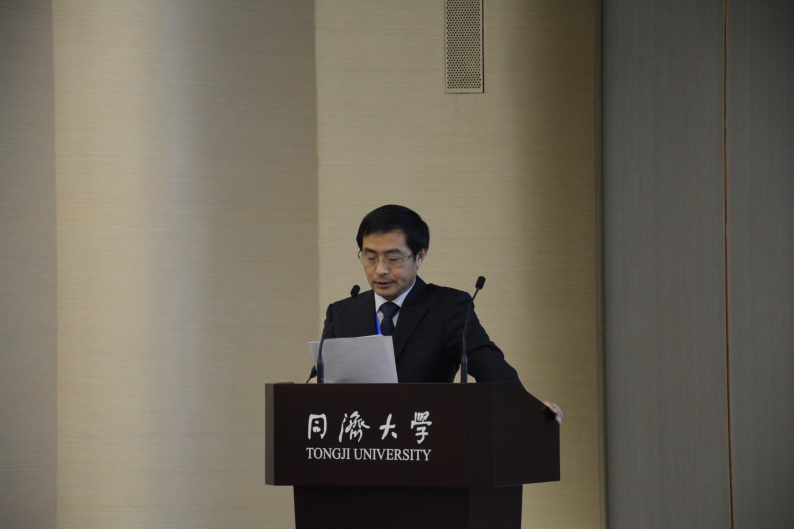
Lee Dong-ryul, a professor at Dongduk Women’s University, shared his views in his speech “The impact of China’s global governance system reform on US-China relations and the global situation”. He said that developing countries can choose a development path in line with their own national conditions. To achieve its goal of rise, China should overcome the challenges and obstacles in the process of development, especially the “Thucydides Trap” and the pressure from the United States.
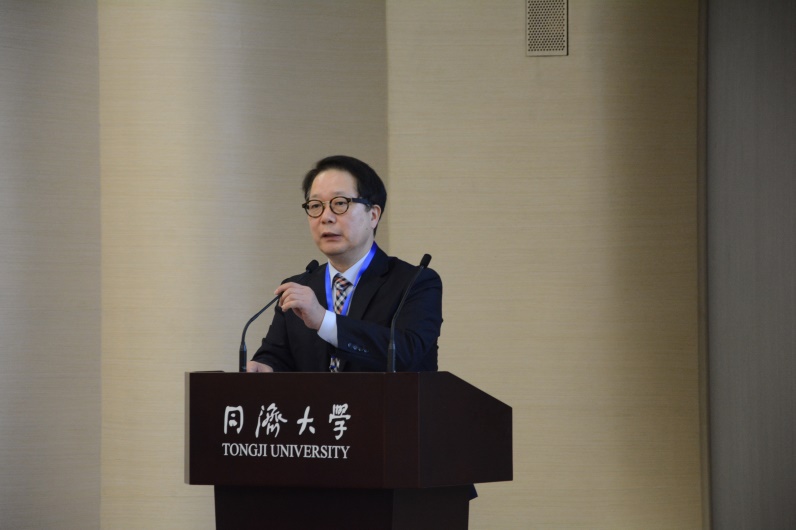
In his speech entitled “The World Order in Evolution”, Li Bin, a professor at the School of Government at Nanjing University, made a detailed analysis of the world order from such issues as economic globalization that has slowed down but has not been reversed, revised neoliberal national policies, and new trends in international politics.
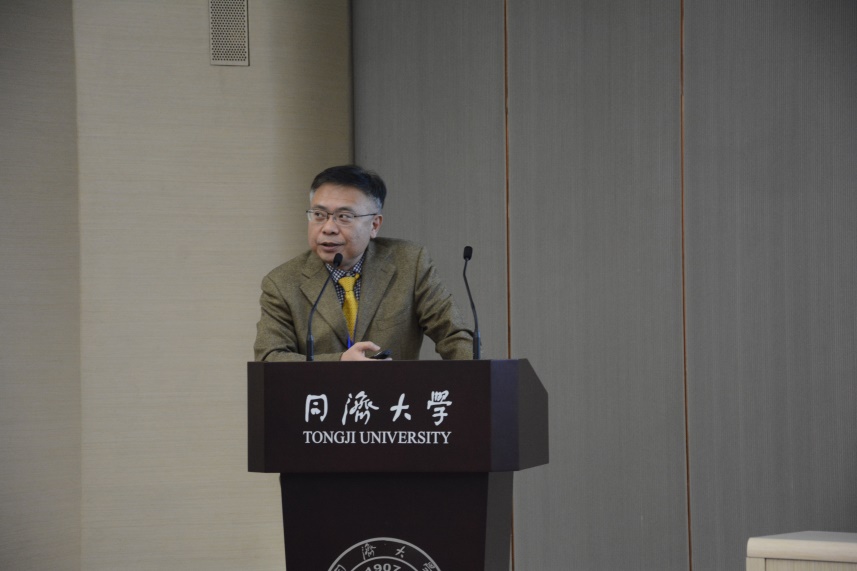
Zhou Minkai a professor at SPSIR, and Lee Sun-jin, former South Korean Ambassador to Indonesia, commented on the above four speeches.
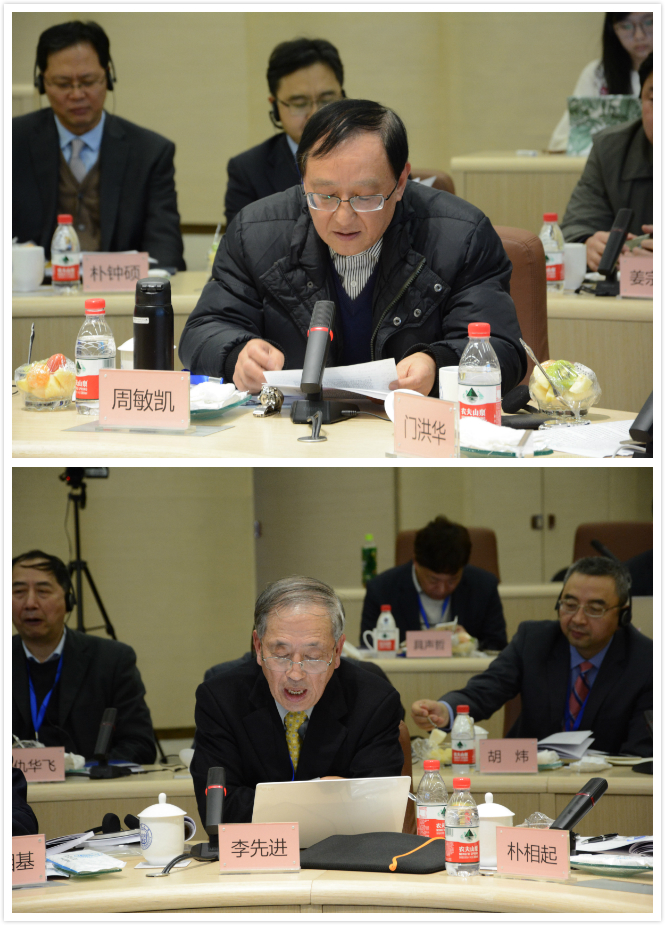
The second session themed “International Relations in Northeast Asia” was moderated by Prof. Liu Shuyan, Dean of the International School and Vice President of the Institute for China World Studies, Tongji University.
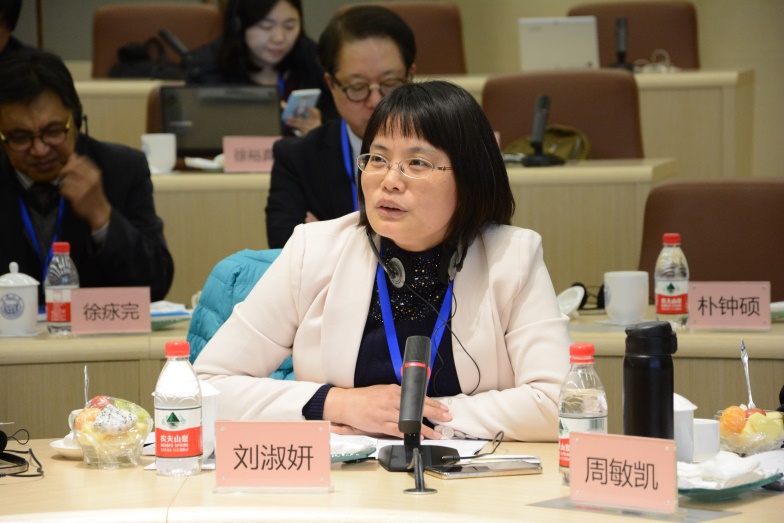
Prof. Wu Xinbo, Director of the Institute of Chinese Studies at SISU, analyzed the historical logic of the rise of countries and blocs in East Asia, and pointed out that the return of the world’s center of gravity to the East is a return to a long-term historical trend. He emphasized the need to return to East Asian logic. China’s global strategy and the Belt and Road Initiative should provide Japan and South Korea with sufficient strategic space so that Japan and South Korea can give full play to their unique role. At the same time, to support the rise of China is to support the development and rise of other countries in East Asia. China, Japan and South Korea should try hard not to be influenced by the paradoxical logic of the West, and should carry forward the East Asia spirit to jointly create a better future for Asia and the world.
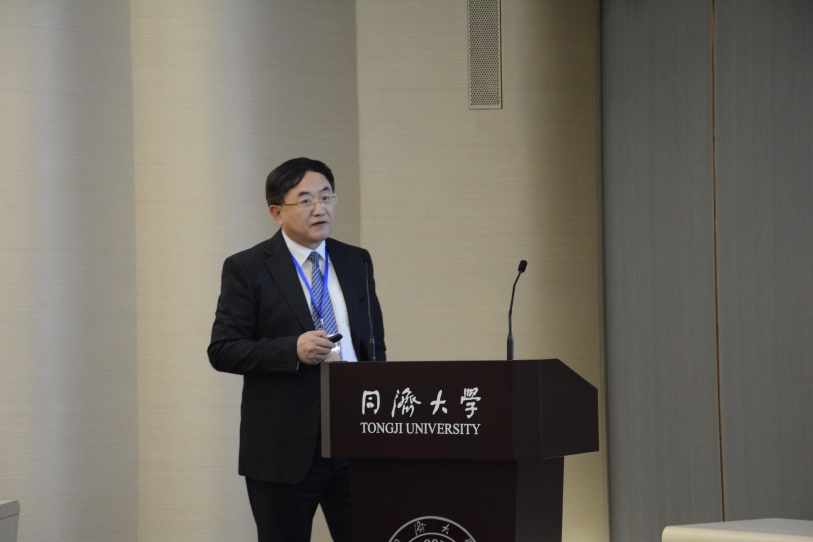
Won Dong-wook,a professor of Chinese Studies at Dong-A University, analyzed the new vision of cooperation in Northeast Asia, andexplained the concept of “Northeast Asia + a Community of Shared Responsibility” in the foreign policy of the Moon Jae-in administration. As a special “strong country”, South Korea lives in an encircled geopolitical environment, but an environment that values peace and cooperation is more in line with its national interests,he believed.
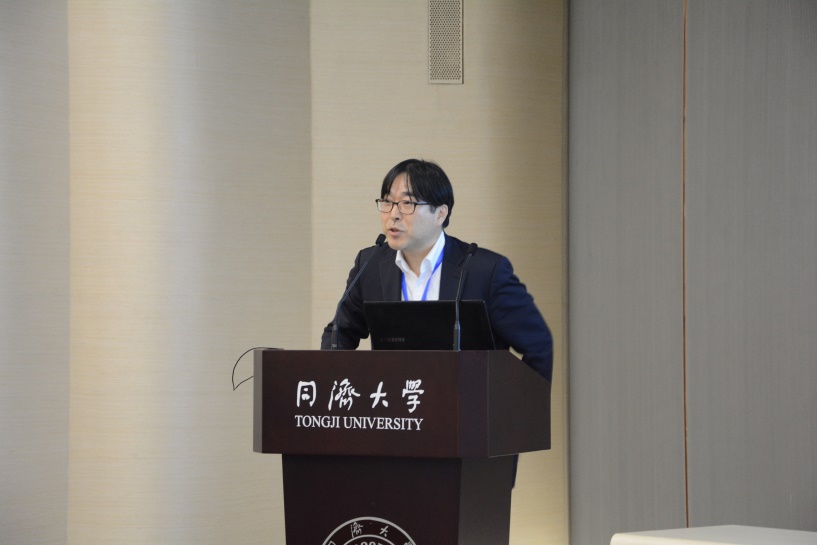
Associate Professor Zhong Zhenming, assistant to the dean at SPSIR, said that the tough confrontation between the United States and North Korea has caused both China and South Korea to be in a very passive position. All stakeholders in the North Korean nuclear crisis need to rebuild a consensus on the priority issues to prevent from undermining the already fragile security structure of the peninsula by means of further confrontation. The settlement of the crisis/stalemate requires all stakeholders to redefine the priority of their policy objectives, refrain from applying reinforcing wedge strategies aimed at dividing the rivals, and strengthen cooperation based on a problem-solving approach.
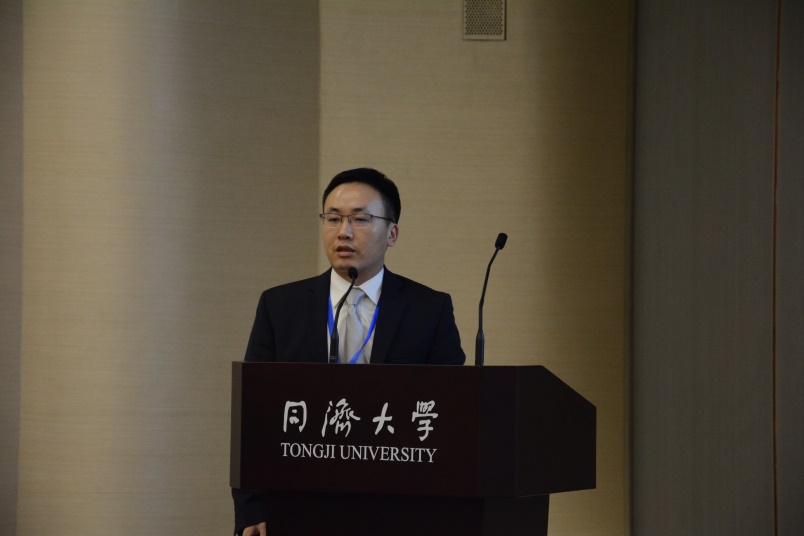
Prof. Lee Hong-gyoo, Deputy Director of the Center for Chinese Studies at DSU, pointed out the problems of East Asian regionalism based on the state-oriented theory and suggested corresponding solutions. He said that East Asian countries need to cultivate young talents who understand the region and pursue common development. And a common platform should be established to strengthen civic education in China, Japan and South Korea, thus creating a cooperation network for civil society in East Asia.
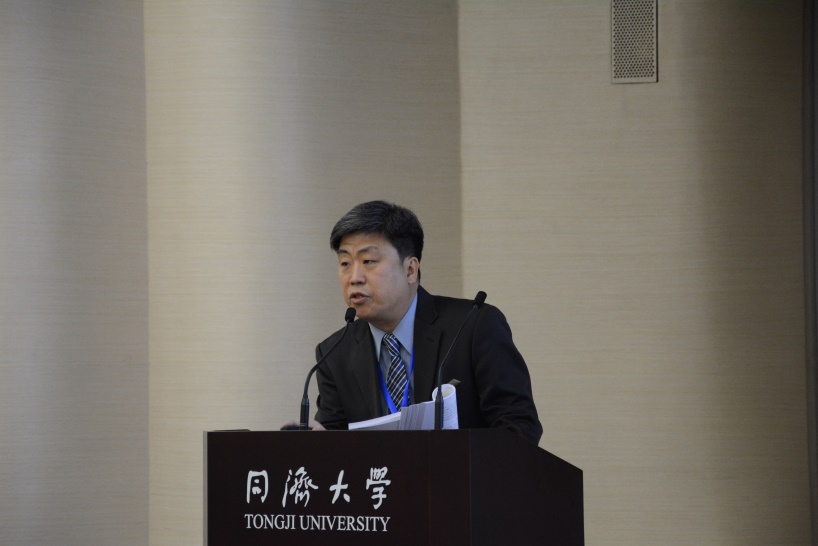
Lee Ju-hyuong, a professor at Changwon University, and Xia Liping, a professor at SPSIR, commented on the second session.
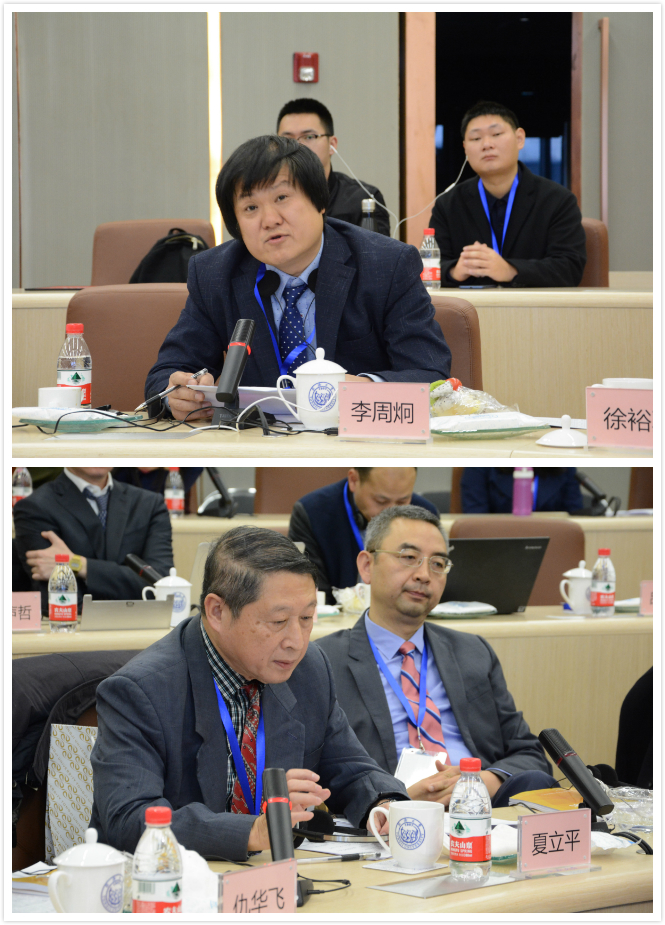
Themed “China and the World in the Eyes of Entrepreneurs”, the third session was moderated by Dean Prof. Men Honghua. He first pointed out that as the stem cell of social development, an enterprise focuses not only on its own profitability, but also on how its social value can be delivered. The world in the eyes of entrepreneurs is colorful and dynamic. How the business community views the relationship between China’s rise and global change is worthy of attention. As for China-ROK cooperation, opportunities always exist, even in the toughest times. The cornerstone is economic ties, in which business cooperation is the key foundation. Entrepreneurs’ unique perceptions are also worthy of our attention.
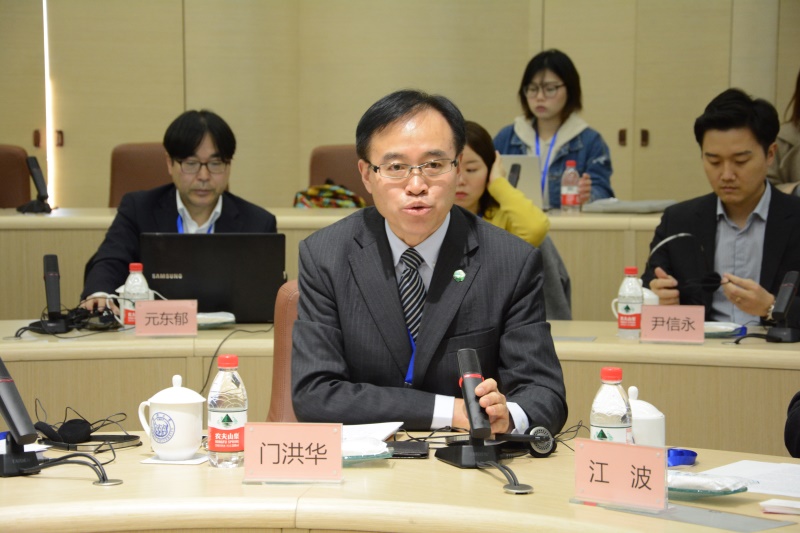
Mr. Li Jianhong, CEO of Red Star Macalline, first showed a map of China, on which every province is marked with a country that has nearly as much GDP as it. This was an entrepreneur’s way to see China’s development by province. He introduced the Chinese leading companies dubbed “BATJ” (Baidu, Alibaba, Tencent and JD.com.), and pointed out that there are huge development opportunities for Chinese companies to grow from a local brand to a global brand, but they are facing major challenges at the same time. Li introduced to the Korean participants the major progress made by Chinese companies in the Internet, big data and other fields, and pointed out that the next decade will witness Chinese companies’ achievements around the world.
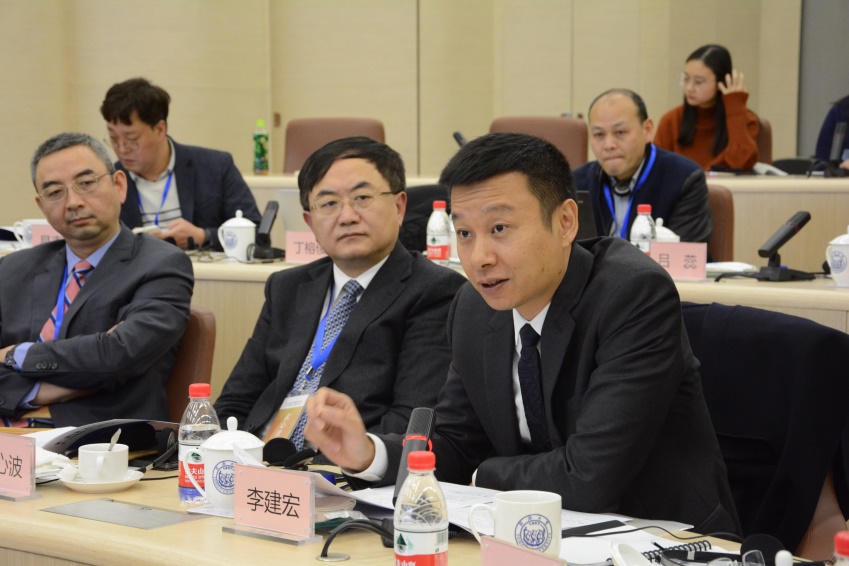
Mr. Hu Wei, Chairman of World Transmission Technology (Tianjin) Co., Ltd. took his personal experience as an example to analyze the similarities between Chinese and Korean entrepreneurs in terms of cultural understanding and lifestyle. He further pointed out that the advancement of Internet has made global communication very convenient, and in the future, mankind will live in a world of the Internet of Things, where Chinese and Korean companies will be provided with more space for cooperation under the concept of “collaboration, sharing and mutual benefit”. He further elaborated on his understanding of “seeking common ground while reserving differences” at the 1st forum. Since China and South Korea’s choices would be affected by the uncertainty of DPRK-US relations, China and South Korea should agree on extensive cooperation mechanisms to avoid being involved in the DPRK-US strategic confrontation, he hoped.
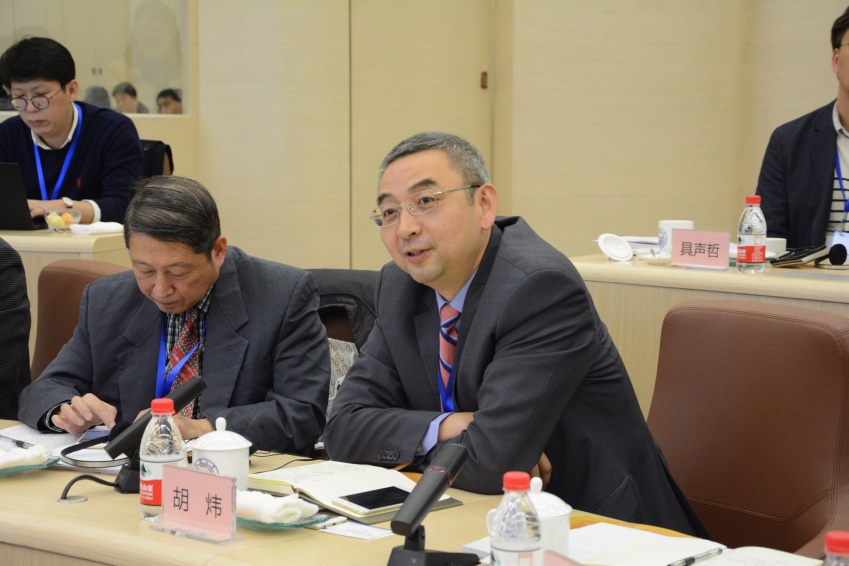
Kang Da-euk, a representative director at DAEAH E&C, said that mutual understanding between the two peoples requires a deep understanding of the two cultures, which can in turn promote political and economic development. He said that the real estate market, aging population and other issues will affect China’s domestic demand, and China should have policies in place to respond.
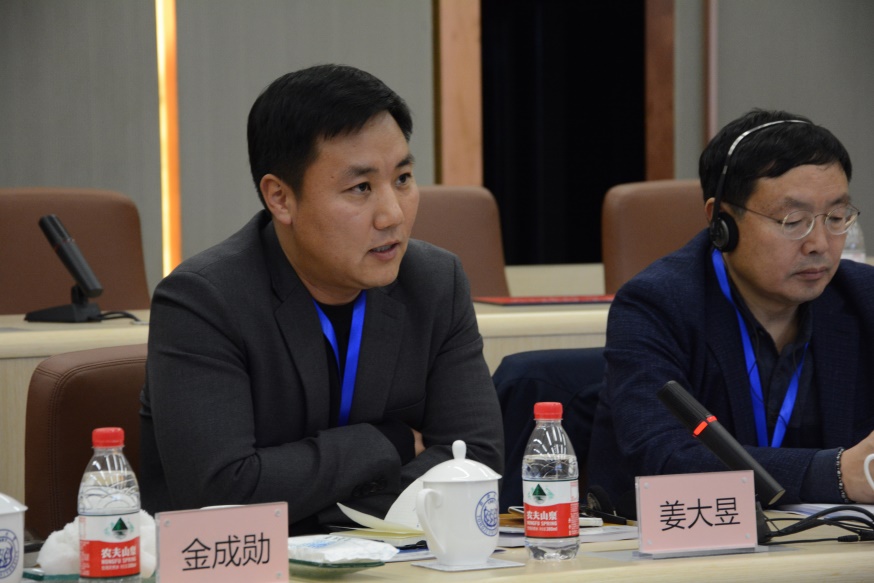
Kang Jong-wan, a representative director at SND LOGIX, believed that there are both competition and cooperation between the economies of China and South Korea by taking the logistics and expressway service area industry as an example. He suggested the two countries find opportunities for cooperation by means of platform investment or indirect investment when China-ROK trade stagnates. He also called on Chinese and Korean scholars and politicians to pay more attention to these issues in the future.
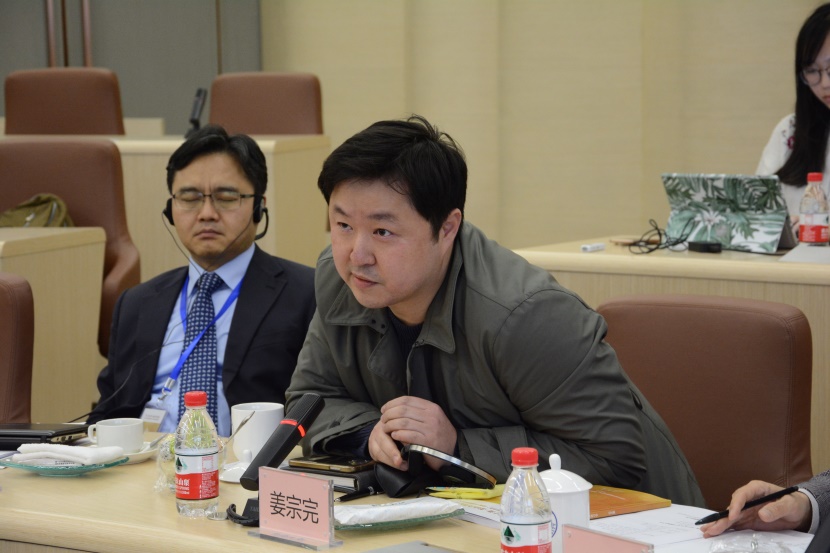
Kim Seong-hun, a director at EASTERN MARINE, mentioned in his speech that South Korean private enterprises are in a highly competitive market environment, and hoped that meetings like the Shanghai-Busan Cooperation Forum can provide more policy advice for private companies on how to get out of the predicament when there are problems with China-ROK relations.
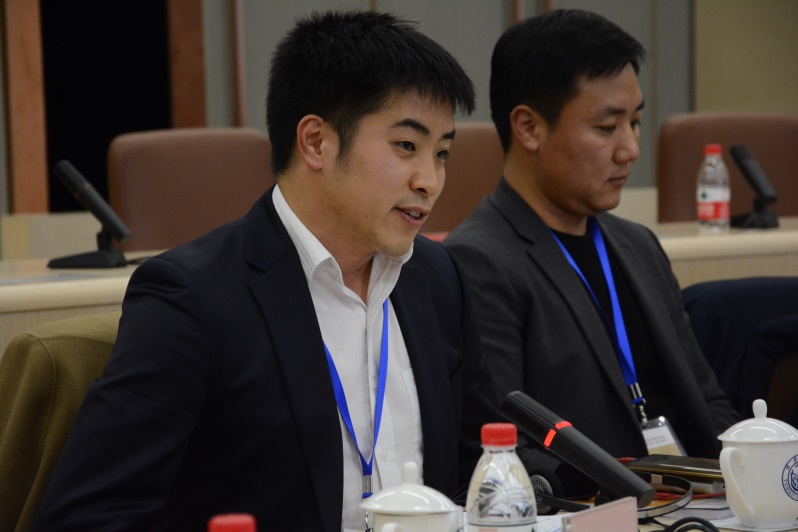
Park Sang-ki, former South Korean ambassador to Geneva, expected that the China-ROK FTA agreement will allow more Korean entrepreneurs to do business in China and contribute to China-ROK investment cooperation.
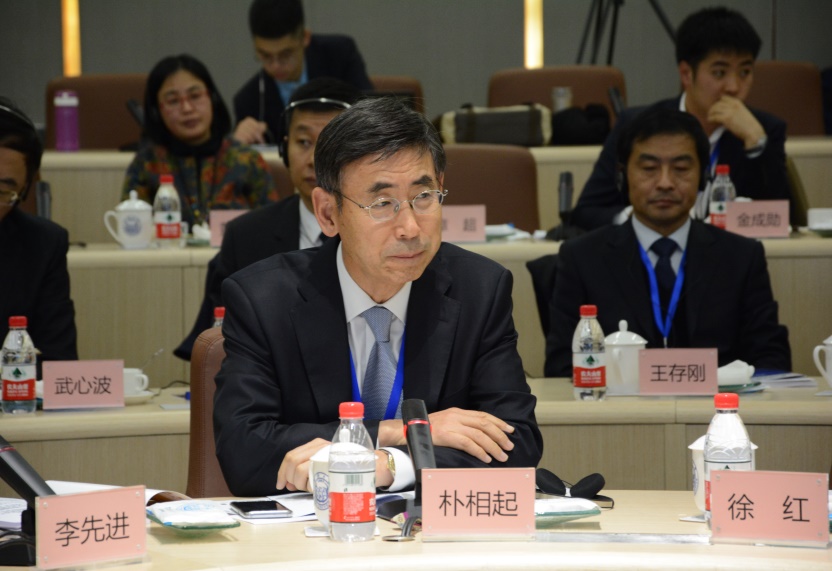
The fifth session themed “China-ROK Relations” was moderated by Prof. Xia Liping.
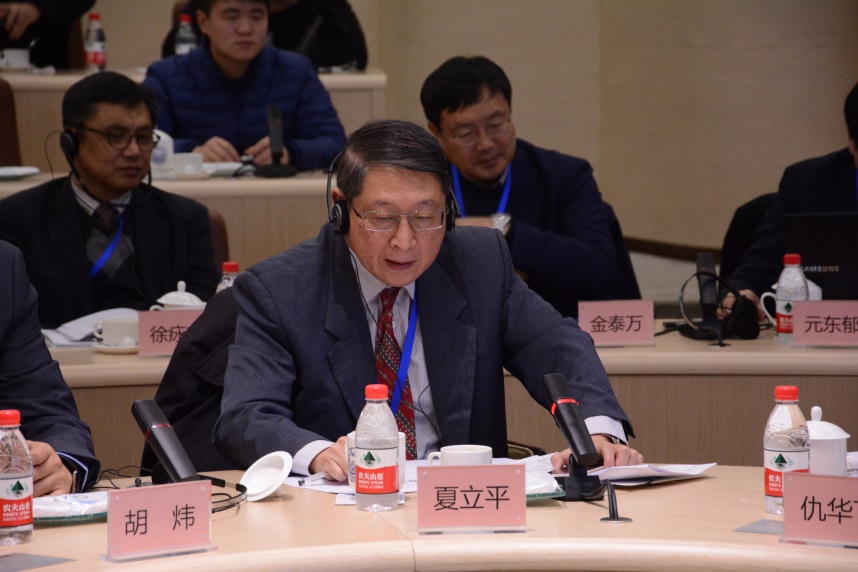
Qiu Huafei, a professor at SPSIR, analyzed China-US relations from three issues: the impact of China’s rise on the West, the US strategy to contain China’s peaceful rise, and China’s peaceful rise and China-US relations.
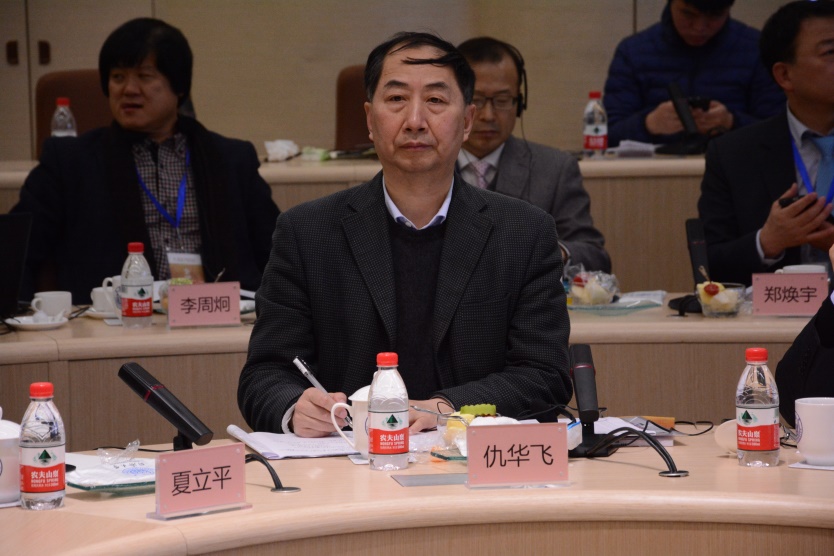
Kim Hong-youl, a professor at the Department of International Trade, School of International Studies, DSU, believed that THAAD and China’s non-tariff barriers are the main factors affecting the economic and trade relations between China and South Korea, and proposed that the adoption of AEO certification and FTA system can help boost bilateral trade.
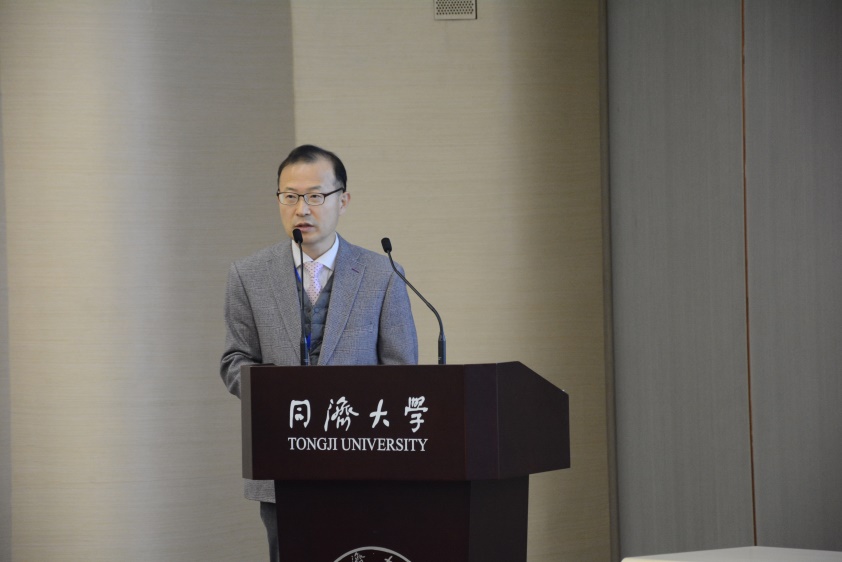
Guo Rui, a professor at the School of Public Administration of Jilin University, analyzed three issues: Moon Jae-in’s considerations on China-ROK relations and related measures, the problems facing the development of China-ROK relations, and how to promote China-ROK relations in the new era, and put forward policy suggestions on the development of China-US-ROK relations. He advocated that China and South Korea should lead the establishment of a Northeast Asian security cooperation mechanism, and China should adhere to a North-South balance policy towards the Korean Peninsula and promote the new development of the functional China-US-ROK relationship.
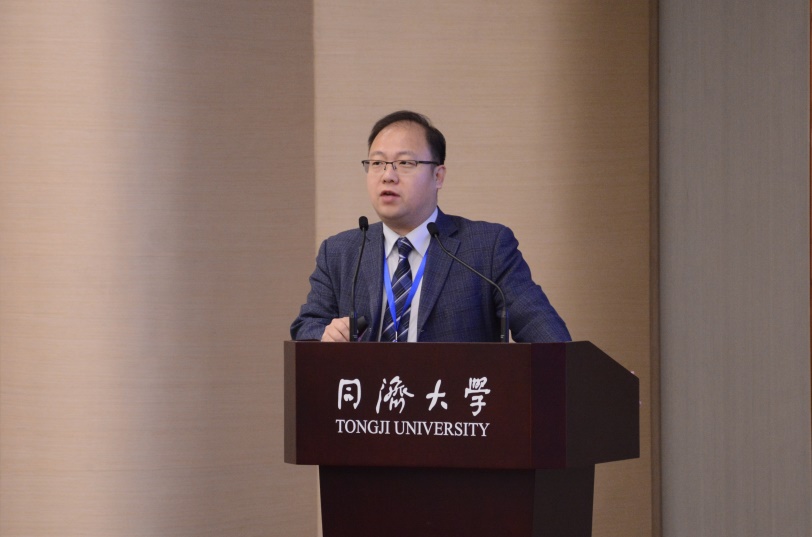
Koo Sung-cheol, an executive fellow at the Center for Chinese Studies of DSU, hoped that China would develop a relationship featuring innovation, coexistence, communication and inclusiveness with South Korea in the new era.
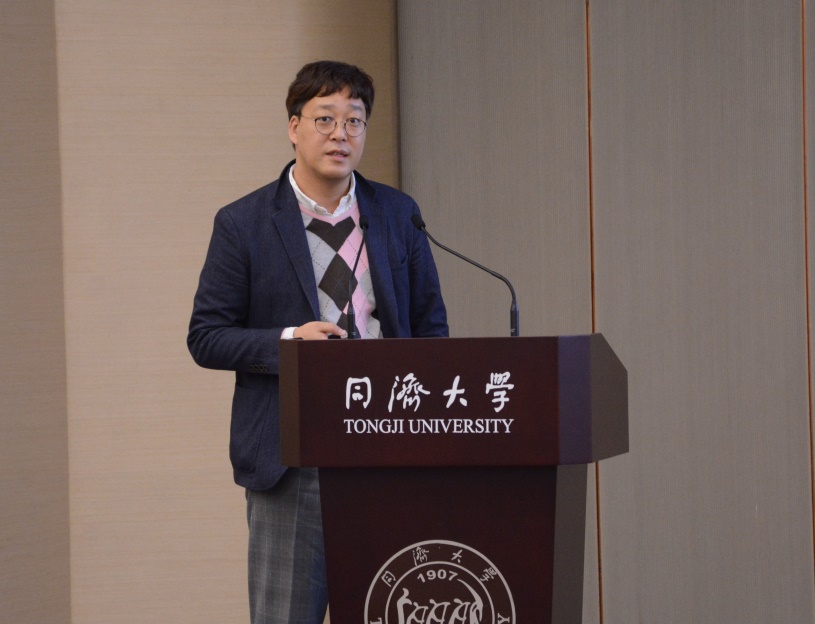
Dr. Lyu Rui at SPSIR and Mr. Chung Hwan-woo, a researcher of China issues at KOTRA, commented on the fourth session.
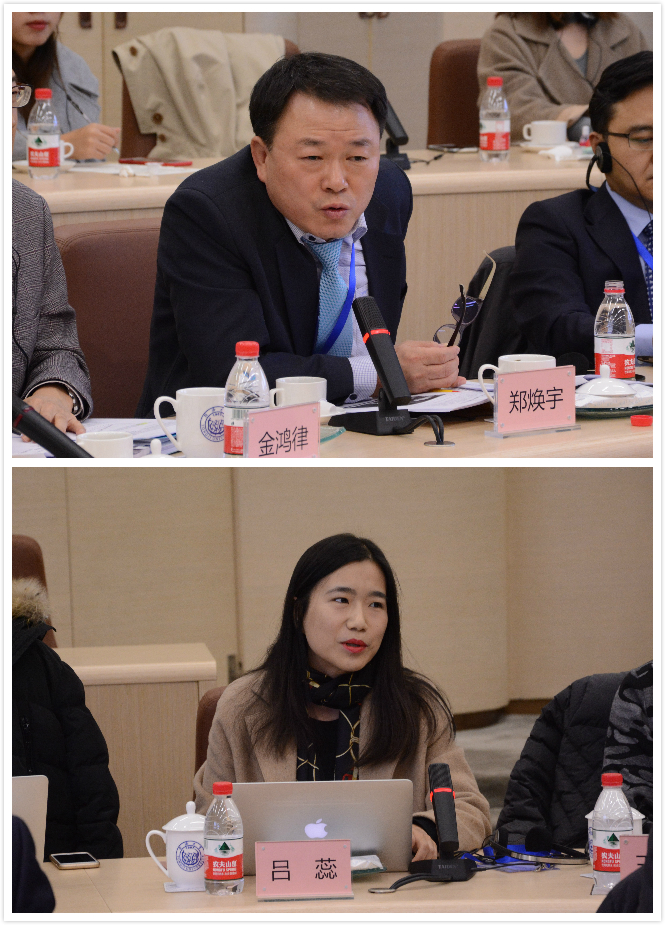
Focusing on building a community of shared future for the central cities of China and South Korea, the sixth session “Shanghai-Busan Cooperation from the Perspective of Urban Governance” was moderated by Chung Sang-ki, Director of the Center for Chinese Studies at KNDA.
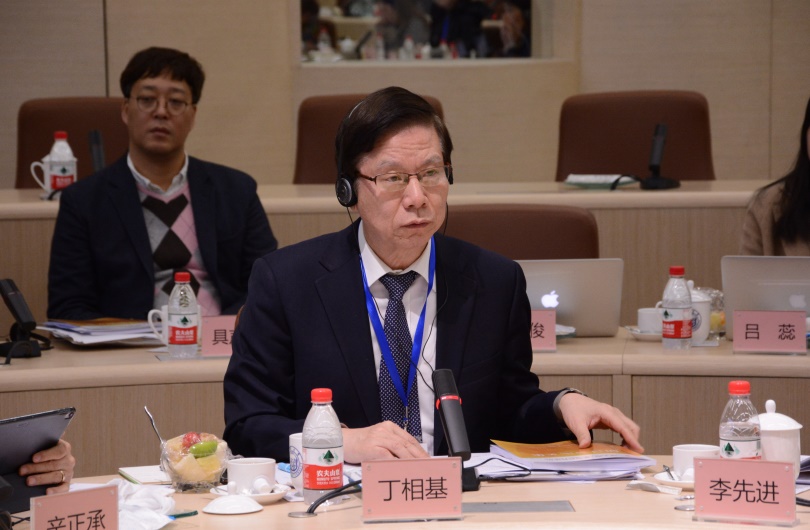
Kim Tae-man, a professor at the Department of East Asian Studies of KMOU, put forward a concrete “Busan-Shanghai People-to-People Exchange Program” to explore the friendly cooperation and exchange model from the perspective of people-to-people exchanges.
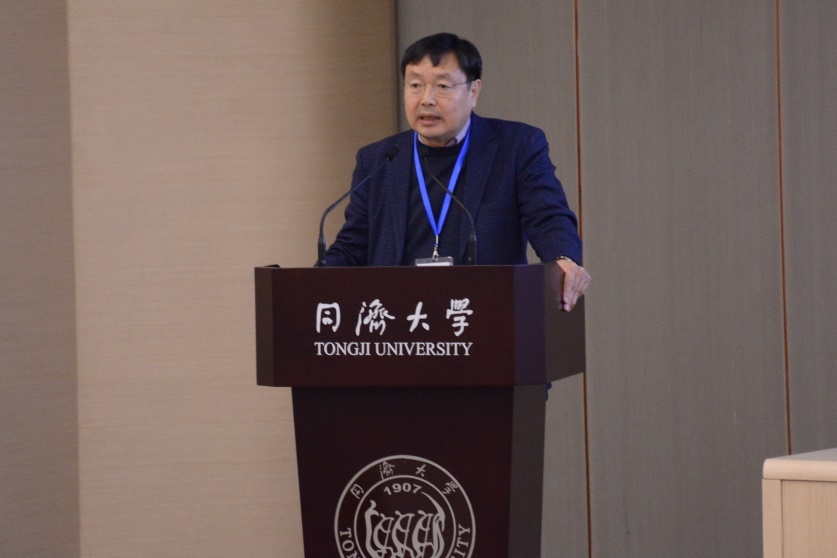
Prof. Zhao Hongjun, Vice Dean of the School of Finance and Business, SHNU, analyzed the current research on the cooperation and interactions between Shanghai and Busan in the Chinese academic circle through detailed data. On the whole, there are not many interactions between Shanghai and Busan, not to mention the scale and level. It is possible for the two cities to carry out industrial cooperation given the similarity in their positioning and advantageous industries. The two cities also have complementary interests in medicine and health, modern agriculture, shipbuilding, marine science, mobile payment, education and business, so there is much space for cooperation.
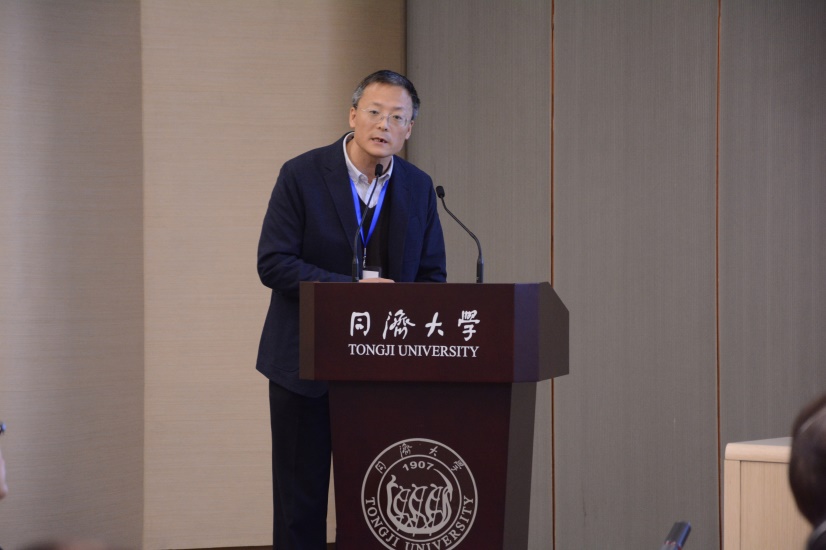
Seo Su-wan, a professor at the Department of International Logistics, School of International Studies, DSU, offered advice on port cooperation between Shanghai and Busan: they can establish a regular meeting mechanism for port authorities to find cooperation projects; improve the port management system through enhanced personnel exchanges; build smart ports to strengthen the sharing of port management information; build a cruise network; and conduct feasibility studies for ferry business.
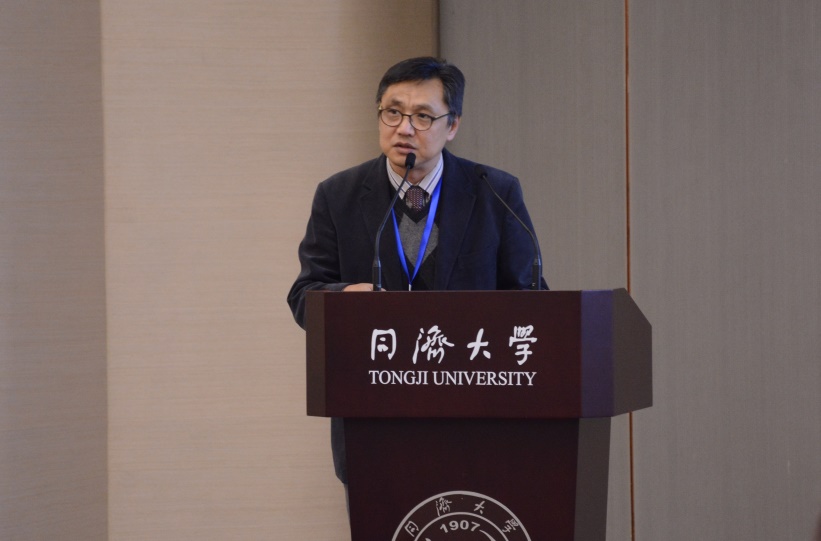
Prof. Lee Hong-gyoo commented on the speeches in this session and proposed the vision for further development of this forum. Prof. Han Chuanfeng, Vice Dean of SEM, Tongji University, advocated that Shanghai and Busan jointly build a community of shared future in pursuit of cooperation and value increase.
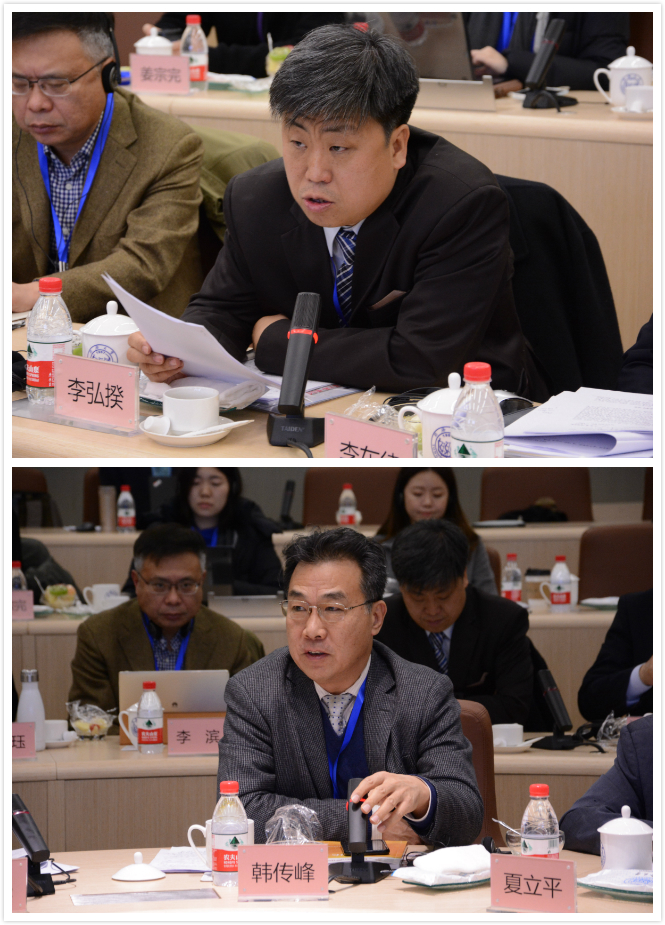
Afterwards, the participants had a heated open discussion on a wide range of topics including the THAAD issue, third-party factors in China-ROK relations, Shanghai-Busan urban governance, China-ROK cooperation, and the pattern of international relations in Northeast Asia, etc.
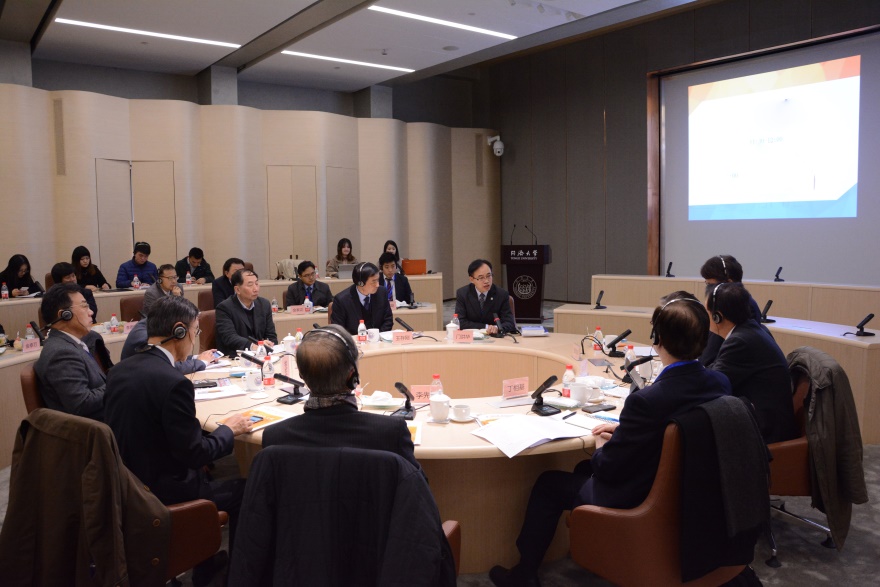
The closing ceremony was moderated by Prof. Wang Cungang. Ambassador Shin, Dean Men and Vice President Cho made concluding remarks in turn.
Shin noted that this forum has explored global issues in addition to China-ROK relations, which is a great progress compared with the first forum. The entrepreneur representatives from both sides have added new blood to the forum. At the same time, the exchanges between the younger generations are also very important. Discussions of the participants have shown that the China-ROK relations can be improved through mutual efforts. Scholars from the two countries have offered suggestions on Shanghai-Busan substantive exchanges and cooperation, including building an urban community of shared future between civic groups and communities, as part of constructive results at the forum.
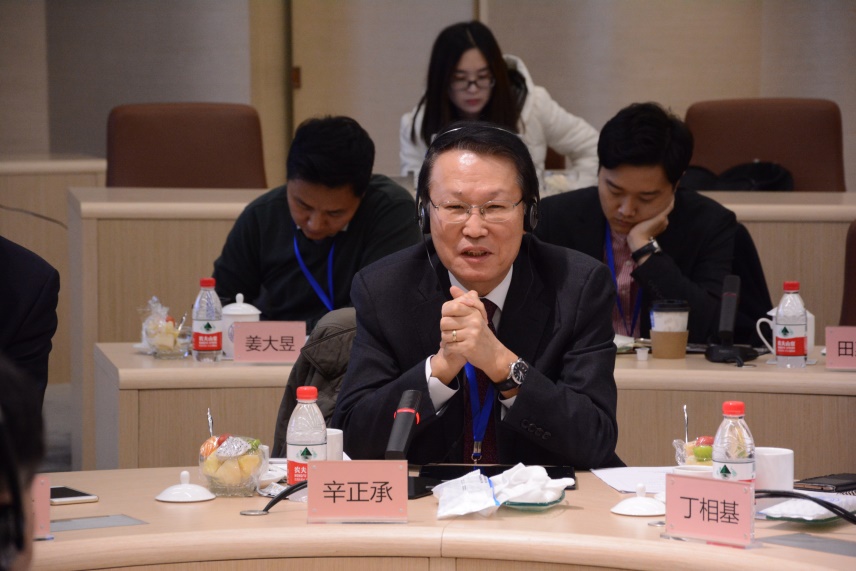
Dean Men pointed out that the two sides have achieved fruitful results after heated discussion in a limited time. He summarized this forum in a few sentences: “From heaven to earth, all things are connected in the world”; “Focus on people-to-people exchanges via the bridge of trade”; “There is a promising future for both Shanghai to Busan”; “Thank you all for participation and contributions”. Dean Men expressed his gratitude to DSU Vice President Cho and all the Korean guests for their participation, and looked forward to the future cooperation. He also expressed his heartfelt thanks to the Chinese experts and entrepreneurs as well as the teachers and students of our school.
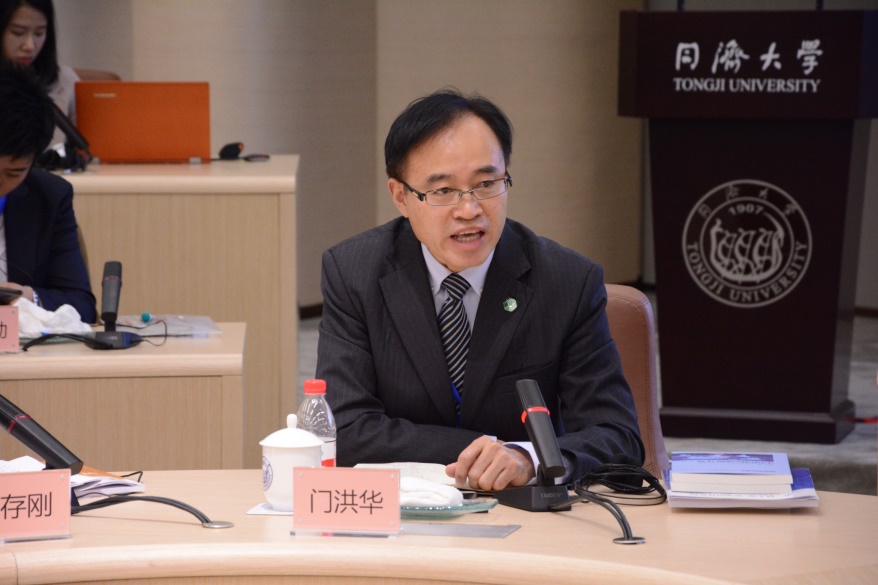
DSU Vice President Cho concluded that the 2nd Shanghai-Busan Cooperation Forum was a complete success, and thanked the team led by Prof. Men and Amb. Shin again for their exceptional contributions to the success of this forum. He promised that DSU will do its best to host the 3rd forum next year.
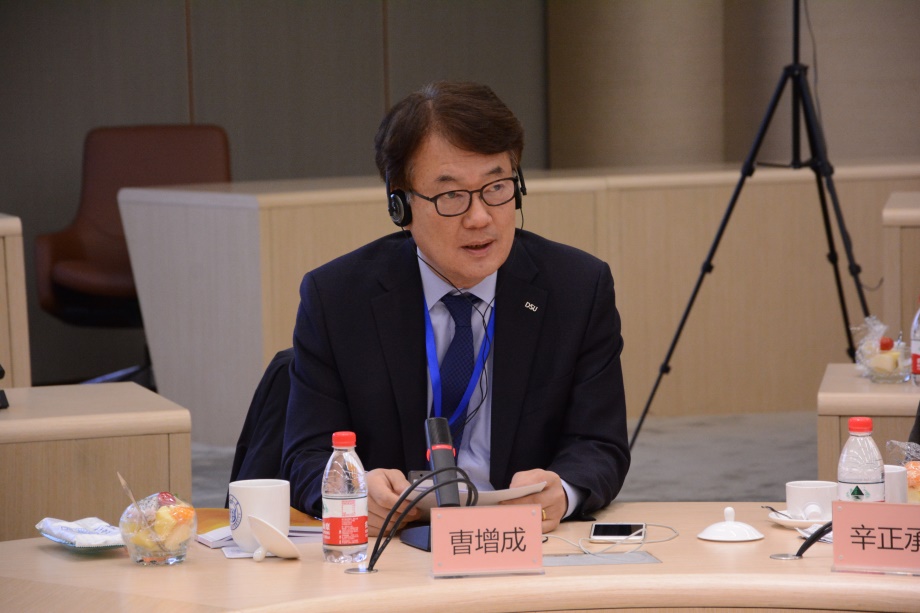
At the end of the closing ceremony, Dean Men announced the successful conclusion of the 2nd Shanghai-Busan Cooperation Forum and International Symposium on “Regional Cooperation in Northeast Asia”, and looked forward to meeting again in Busan next year to write a new chapter for the forum.